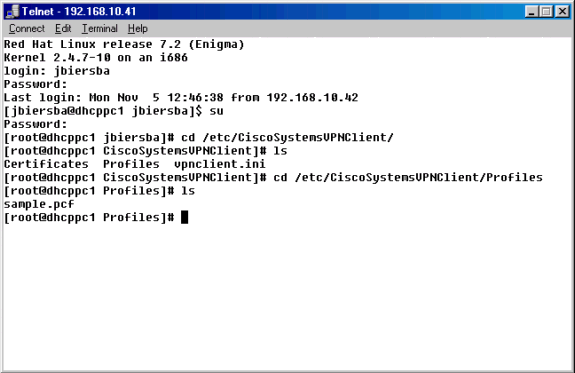


Try to SSH both sides ssh The authenticity of host '172.16.7.2 (172.16.7.2)' can't be established.ĮCDSA key fingerprint is SHA256:wKoh/MWvCicV6cEe6jY19AkcBgk1lyjZorQt3aqflJM.Īre you sure you want to continue connecting (yes/no)? yes Now that we have two clients assigned their individual addresses systemctl restart strongswanĭisable strongSwan from running on system boot systemctl disable strongswanĬheck the status ipsec statusall Security Associations (1 up, 0 connecting): Save the configuration file and restart the strongswan. # this file is managed with debconf and will contain the automatically created private key # user id : EAP secret vpnsecure : EAP " " Setup authentication secrets vim /etc/crets. See the configuration file below vim /etc/nf conn ipsec-ikev2-vpn-client
#Centos add cisco ipsec vpn client update#
Update the /etc/nf configuration file to define how connect to the strongSwan VPN server. Configure strongSwan VPN client on Ubuntu 18.04/CentOS 8 place it on the /etc/strongswan/ipsec.d/cacerts directory on CentOS 8.

#Centos add cisco ipsec vpn client install#
Hence, begin by installing EPEL repos dnf install epel-release dnf update dnf install strongswan strongswan-charon-nm Install strongSwan VPN Server CA certificate on the ClientĬopy the strongSwan CA certificate generated above, /etc/ipsec.d/cacerts/vpn_ca_cert.pem to the client servers and StrongSwan packages is provided by the EPEL repos on CentOS 8 and similar derivatives. StrongSwan and extra plugins can be installed on Ubuntu 18.04 by running the command below apt update apt install strongswan libcharon-extra-plugins Install strongSwan on CentOS 8 Configure strongSwan VPN Client on Ubuntu 18.04/CentOS 8 Install strongSwan on Ubuntu 18.04 In this demo, we are using Ubuntu 18.04 and CentOS 8 as our test strongSwan VPN clients. Once you have the strongSwan VPN server setup, you can now proceed to test the IP assignment and local connection via the VPN server.


 0 kommentar(er)
0 kommentar(er)
